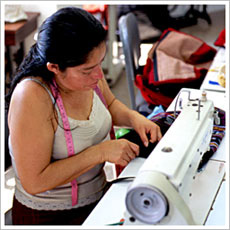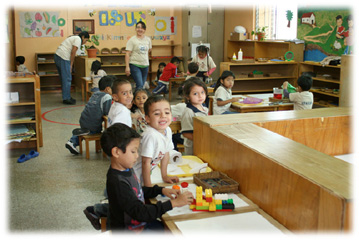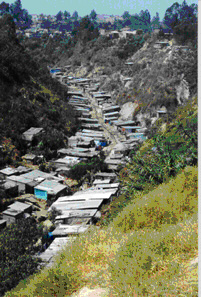One World Projects
Coffee Scented Trivet
Coffee Scented Trivet
Couldn't load pickup availability
Share
Enjoy the smell of coffee when placing a hot cup on this aromatic trivet. Covered with traditional, hand-woven Guatemalan fabric, this trivet is filled with coffee beans and will protect your surfaces from hot dishes, teapots or carafes.
These functional and aromatic trivets are made by women artisans from the UPAVIM cooperative on the outskirts of Guatemala City. UPAVIM, which stands for United for a Better Life, is an 80 member artisan enterprise helping women through social and economic empowerment. In addition to training women in creating various handmade textiles, UPAVIM has established a school, a pharmacy and a bakery within their cooperative.
- Measures 1” high x 4-1/4” diameter
Handmade in Guatemala and fair trade imported.

UPAVIM Crafts is a cooperative of women who live in marginalized communities on the outskirts of
Amongst some of the achievements, In 2002 the cooperative was awarded the best Non-traditional Textile Exporter award by AGEXPRONT, a national trade organization, also UPAVIM’s Montessori school was recognized by the Guatemalan government.

The main product line made by these women artisans includes bags, purses, wallets, aprons and holiday ornaments, most of these products are made from the traditionally woven Mayan textiles which are locally available. By procuring the traditional textiles, the organization also helps promote traditional weavers of the region and brings a local flavor and uniqueness to their products. This also cuts down the role of middlemen and creates a chain of fair wages and fair prices - from the weaver, to the seamstress, to the customer.
Apart from craft making, UPAVIM also initiated other small scale businesses which include a bakery, soy milk factory, and an internet center. The main aim was to increase the means of employment for the community members of La Esperanza, so that they can gain optimum benefits from the program.
 The cooperative is located in a squatter settlement called La Esperanza (Hope), where every day the communities faced various social challenges including gang violence, illiteracy, unemployment, malnutrition, alcoholism, child abuse and drug abuse. Even though the challenges for community growth in an area that receives little government attention may be high, but today after 2o odd years and initiatives by UPAVIM and the women, the conditions have changed for the better in this “City of
The cooperative is located in a squatter settlement called La Esperanza (Hope), where every day the communities faced various social challenges including gang violence, illiteracy, unemployment, malnutrition, alcoholism, child abuse and drug abuse. Even though the challenges for community growth in an area that receives little government attention may be high, but today after 2o odd years and initiatives by UPAVIM and the women, the conditions have changed for the better in this “City of
About the Artisans
About the Artisans
We work with One World Projects who in turn, works with Choma Museum and Crafts Centre Trust Ltd (CMCC), in Choma, in the center of the Southern Province of Zambia, Africa.
The crafts divisions of the CMCC are associated with about 450 crafts makers, primarily women (400) who are subsistence farmers who derive badly needed cash income from their crafts making. The CMCC seeks to promote Zambian crafts and culture by assisting in marketing, skill development and local organization of producers. The skill development is based on traditional techniques, materials, and design.
Plateau Baskets are made on the Plateau districts by Tonga women living on the highlands of the Southern Province of Zambia. The development of this basket during the past 25 years has been spectacular. It is the major single craft of the province and is exported all over the world.
Basket Weaving from Natural Fibers
Basket making is the main economic craft of the province, so domestic cultivation of the Malala Palm tree is promoted. Women are the main beneficiaries of basket-weaving income.
The traditional Tonga basket has a square woven base and a wide round rim at the top. The bottom strips or twigs extend radially into the walls of the basket and palm leaf strips are then woven into it. The pale strips may be dyed black to allow for woven patterning. Patterns are also made by variations in weaving, by leaving the dark radials exposed or by covering them. The basket is then completed by weaving in a round rim.
Materials
Materials
Dimensions
Dimensions
Care information
Care information



Subscribe to our emails
Subscribe to our mailing list for insider news, product launches, and more.



